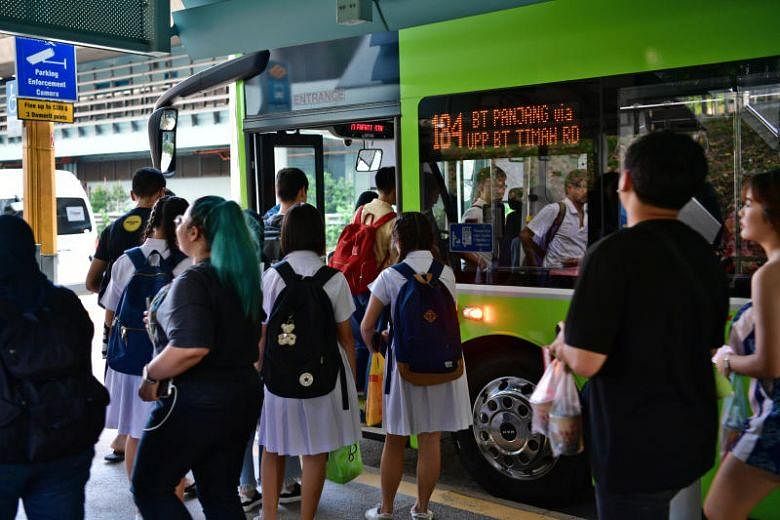Bus and train fares could go up by as much as 7 per cent next year, driven largely by steeply rising energy prices.
This means fares could increase by as much as 10 cents for those who pay for their journeys by card - more than 90 per cent of commuters here.
This is the maximum increase allowed under the current fare formula, which took effect last year and will be in place until 2022.
The Public Transport Council (PTC) is embarking upon its annual fare review exercise and if it approves the potential fare increase in full, it would be the highest in recent years.
The council yesterday acknowledged the growing costs and the need to keep the transport sys-tem financially sustainable as well as affordable.
Public transport operators must submit their fare applications - which should not exceed the maximum quantum that can be allowed - to the PTC by Sept 23, the council said in a statement.
The council's decision on fares will be announced in the last quarter of this year.
The PTC said that the largest contributing factor to the potential fare hike was the double-digit increase in energy prices, which rebounded 26.2 per cent in 2017, and 32.3 per cent last year.
Other components making up the formula - such as the wage index, which measures the change in average wage over the preceding year, and the core consumer price index, which measures the change in inflation rate over the previous year - have also increased over the past year, the council noted.
The PTC noted that Singapore's public transport has improved significantly over the past five years, with the introduction of more than 1,000 buses and 200 trains.
Rail reliability has also seen improvements over this period, with the MRT network hitting 1 million km between delays, a sevenfold improvement from 2015.
While these improvements have come with an increase in the cost of operations for public transport, the council noted that average fares are now four cents to seven cents lower than they were in 2015.
A dip in energy prices between 2015 and 2017 saw a combined 8.3 per cent reduction in fares during that time, though last year saw a 4.3 per cent increase in fares.
PTC member Vincent Chua noted on the council's blog that the Republic's public transport fares have been ranked among the lowest in the world by consultancy firms McKinsey and Deloitte.
Furthermore, the proportion of household income spent on public transport has decreased over the past five years for both average and low-income households, added the associate professor from the Singapore University of Social Sciences (SUSS).
However, the PTC said this has resulted in a "widening gap" between costs and fares, which has so far been covered by the Government together with the rail operators.
The authorities will spend about $4.5 billion on the upgrading of Singapore's rail assets, and are expected to subsidise public bus services to the tune of $5 billion.
In July, Transport Minister Khaw Boon Wan said the Government is currently subsidising more than 30 per cent of public transport operations, and that higher fares are necessary to keep these subsidies in check.
The PTC said that in considering the fare adjustments, it would "consider the views of commuters and relevant stakeholders".
It added that it will strike a balance between the affordability and financial sustainability of the public transport system, with special attention paid to concession groups such as the elderly and needy commuters.
Even if fares were to go up by the maximum 7 per cent, they should still remain affordable, said Singapore Management University transport economist Terence Fan.
"Assuming the various concessions currently in place remain effective, the public should be able to afford the increase."
SUSS urban transport expert Park Byung Joon noted that initiatives such as the building of infrastructure and replacement of assets are costly. "The money (for such expenses) will have to come either from higher fares or higher taxes," he said.



